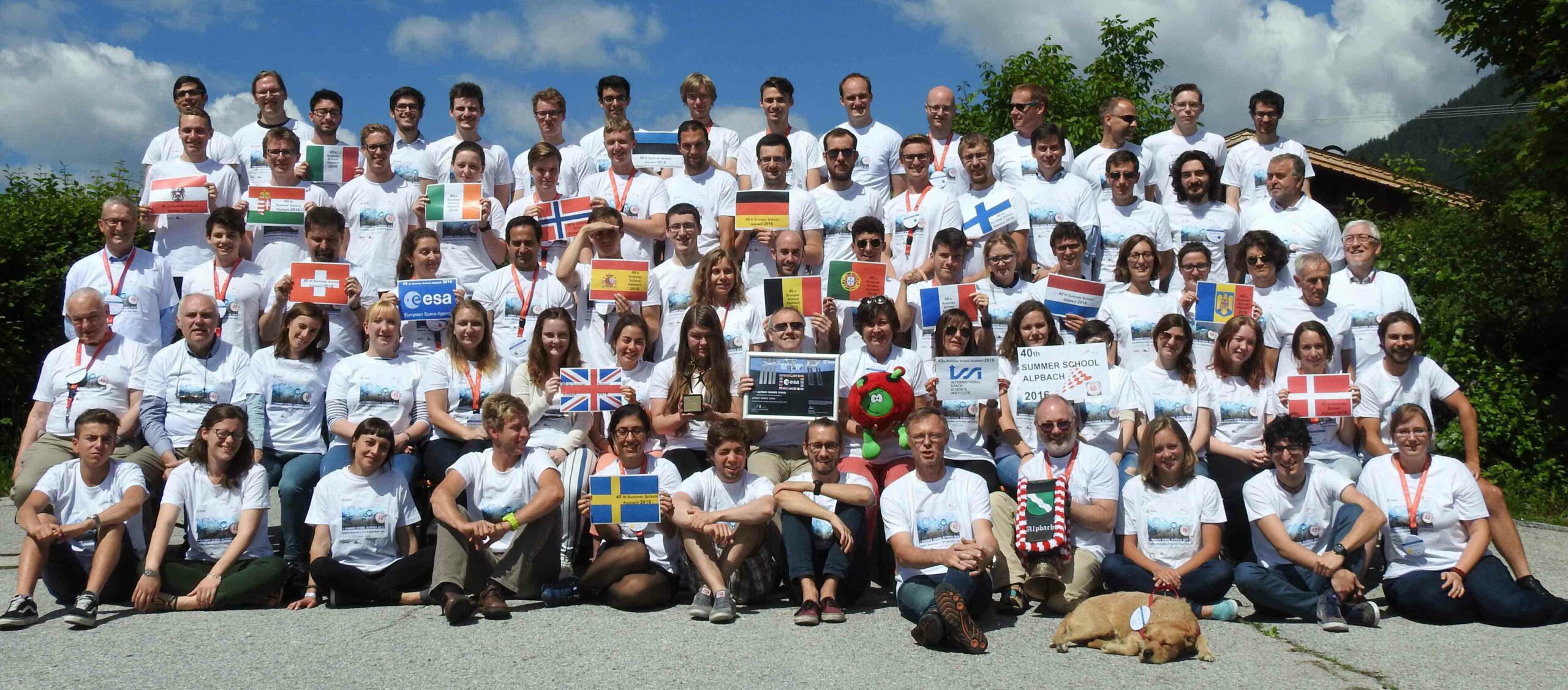A ten day space experience in the Austrian Alps

58 european engineering and Science students from 18 European Space Agency (ESA) member-states were chosen to participate in the 2016 edition of Summer School Alpbach. Portugal was represented by António Cabaços, student at Faculdade de Engenharia da Universidade do Porto (FEUP), Diogo Paraíso, from Instituto Superior Técnico (IST) and Jorge Monteiro, student at Universidade da Beira Interior (UBI).
This year, the Alpbach programme was dedicated to the Global Water Cycle. The abudance of water in liquid and frozen forms is a striking feature of Earth when seen from space. Water is the main element of the global climate system and a prerequisite for life on Earth. This was the starting point for students to conceive and elaborate innovative satellite missions intended to answer key questions relating to the observation of the critical elements of the water cycle.
Over ten days, the participants attended stimulating workshops and lectures on various aspects of space science and technology. Students were distributed in four teams — Green, Red, Orange and Blue — to define and develop a scientific space mission, under the supervision of renown scientific and engineering experts within the field.
On the last day of the Alpbach Programme the students presented their proposals to a juri.
Diogo Paraíso engaged the Green Team: WAVE-E (Water Vapour European-Explorer). His team presented a satellite mission aimed at monitoring water vapour in the Upper Troposphere Lower Stratosphere (UPLS) region to bring a better understanding of the processes in this region, and also in the tropopause, the boundary between the troposphere and the stratosphere. The Green proposal was distinguished with the “Science” and “Best Presentation” awards.
The Orange Team of Jorge Monteiro won the “Competitiveness” Award. The SWEAT team (Snow Water Equivalent with AlTimetry) designed a satellite mission to measure SWE directly on sea ice and land in the polar regions. This mission aimed to contribute to the understanding of the importance of the water cycle to Earth’s energy balance.
CoastSat Team (Red Team) presented the mission entitled “Measuring Water Quality in Coastal Regions using remote sensing”, which was conceived to produce improved measurements to assess the water quality of coastal regions, rivers, and lakes. The effort of the Red Team to “Keep the oceans clean!” was recognised by the juri with a “Special Oscar”. António Cabaços was a member on this project.
The participants of the Alpbach experience had the opportunity to see space as an exciting and challenging enterprise, working in international and multi-disciplinary teams. The students were exposed to a range of scientific topics relevant to designing space missions and developed the ability to work together as a team. In addition they forged long-term friendships with people from other countries.
The Alpbach Summer School is a space science and technology programme directed at students in Science and engeneering. It’s organised by the Austrian Research Promotion Agency (FFG) and co-sponsored by the European Space Agency and by the national space authorities of ESA member and cooperating states. A traditional partner is the International Space Science Institute (ISSI).
Portugal is a member of the European Space Agency (ESA) since 2000. FCT Space Office supports the activities of the Portuguese Delegation, promoting the participation of Portuguese companies and R&D institutions in ESA space programmes, including those in the framework of the ESA-European Union agreement.
Image credits: MA Jakob (2016 Alpbach Summer School participants) | www.esa.int